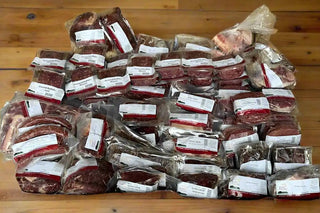In today's consumer-driven world, the power to shape industries and the products they offer lies firmly in the hands of the buyer. Every dollar spent is like a vote cast for a particular type of product or a business practice. This means that collectively, consumers wield immense power to influence corporate behaviors and market offerings, particularly in pushing for healthier, cleaner, and more organic options.
The Dynamics of Supply and Demand
At its core, the relationship between consumers and corporations is governed by supply and demand. Companies, regardless of size, strive to maximize profits and reduce risks. This fundamental principle of business compels them to closely monitor consumer buying patterns. When a shift towards certain products—like organic foods, eco-friendly packaging, or cruelty-free cosmetics—becomes evident, businesses are quick to respond to capture sales and market share.
The Organic Movement: A Case Study
Consider the rise of organic food. Just a couple of decades ago, organic products were mostly confined to niche health food stores. Today, they are omnipresent, found in every major supermarket chain. This shift didn't occur in a vacuum; it was driven by a growing consumer awareness of health and environmental issues. As more people opted for organic options, supermarkets and food companies expanded their offerings to meet this demand.
The Role of Social Media and Awareness
Social media has amplified consumer influence, enabling people to share information, mobilize around causes, and hold companies accountable like never before. Campaigns for non-GMO products or against harmful chemicals in cosmetics have gained traction on platforms like Instagram and Twitter, pressuring companies to change their practices and offerings.
The Economic Impact
It's crucial to recognize the economic side of consumer choices. Companies will often argue that greener alternatives are more expensive to produce. However, as consumer demand for these products increases and production scales up, the associated costs often decrease, a phenomenon seen in the renewable energy sector, among others.
Making Conscious Choices
Every purchase decision is an opportunity to influence the market. By choosing products that are environmentally friendly and ethically produced, consumers can drive companies to reduce waste, lower carbon footprints, and improve labor conditions. This doesn't just apply to food but extends to all sectors, including clothing, electronics, and personal care products.
Conclusion
Ultimately, the adage "the customer is always right" reveals a deeper truth in today's market dynamics. As consumers, our choices have the power to reshape industries. Local versus trucked in, meat from your local farmer instead of supermarket CAFO meat, organic versus GMO, etc. By consciously choosing what we buy and supporting practices we believe in, we can make a significant impact. Remember, if we don't buy it, they won't make it. Let's use our purchasing power to foster a market that values health, sustainability, and ethics. This isn't just a choice—it's our responsibility.



